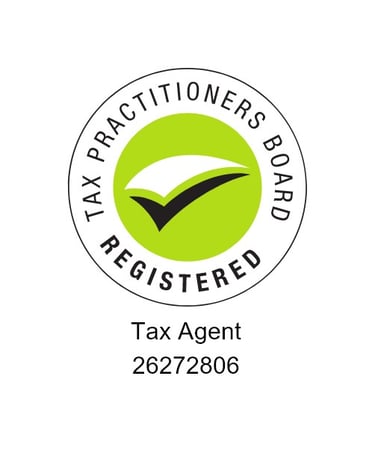Your business is in safe hands.
Essential Guide to Recording Requirements
AFSAA
2/1/20252 min read


Understanding Record-Keeping Requirements for Businesses: A Simplified Guide
Running a business involves more than just providing products or services—it also requires meticulous record-keeping. The Australian Taxation Office (ATO) has specific requirements for businesses to maintain accurate records. This blog will break down the essentials of record-keeping, making it easier for you to stay compliant and organized.
Why is Record-Keeping Important?
Record-keeping is not just a legal obligation; it’s a crucial part of managing your business effectively. Proper records help you:
Track income and expenses accurately.
Prepare financial statements and tax returns.
Claim deductions and credits.
Provide evidence in case of an audit.
Make informed business decisions.
What Records Do You Need to Keep?
The ATO requires businesses to keep records of all transactions related to their tax and superannuation obligations. Here’s a simplified breakdown:
Income Records
Sales invoices, receipts, and cash register tapes.
Records of online sales, including payment gateway reports.
Bank statements and deposit slips.
Expense Records
Purchase invoices and receipts.
Credit card statements.
Records of business-related expenses (e.g., travel, utilities, rent).
Tax Documents
Goods and Services Tax (GST) records.
Pay As You Go (PAYG) withholding records.
Fringe Benefits Tax (FBT) records, if applicable.
Superannuation Records
Records of super contributions made for employees.
Payment summaries and superannuation guarantee statements.
Asset Records
Details of business assets (e.g., equipment, vehicles).
Depreciation schedules and records of asset sales or disposals.
Employee Records
Payroll records, including wages, allowances, and leave.
Employment contracts and tax file number declarations.
How Long Should You Keep Records?
The ATO requires businesses to keep records for a minimum period, depending on the type of record:
Five Years: Most tax-related records, including income, expenses, and GST records.
Seven Years: Records related to depreciating assets or tax disputes.
Ten Years: Records for employees, including superannuation contributions.
Always check the ATO website for specific requirements, as some records may need to be kept longer.
Tips for Effective Record-Keeping
Go Digital: Use accounting software or apps to store and organize records electronically. This saves time and reduces the risk of losing paper documents.
Stay Consistent: Update your records regularly to avoid a backlog.
Backup Your Data: Keep backups of digital records in a secure location.
Separate Business and Personal Finances: Use separate bank accounts and credit cards for business transactions.
Seek Professional Help: If you’re unsure about your record-keeping obligations, consult a tax professional or accountant.
What Happens if You Don’t Keep Proper Records?
Failing to maintain accurate records can lead to:
Penalties and fines from the ATO.
Difficulty claiming deductions or credits.
Challenges during an audit or review.
Final Thoughts
Record-keeping may seem daunting, but it’s a vital part of running a successful business. By staying organized and understanding the ATO’s requirements, you can save time, reduce stress, and ensure compliance. For more detailed information, visit the ATO website or consult a AFSAA trusted tax professional
Remember, good record-keeping is not just about meeting legal obligations—it’s about setting your business up for long-term success. Happy record-keeping!
The information shown on this website is general information only, it does not constitute any recommendation or advice and as such it has been prepared without taking into account your financial situation, specific needs or objectives
Get in touch
Contact us if you have any questions or to book a free initial appointment
Contact AFSAA, email us at admin@afsaa.com.au
Hany Berty (FCPA)
Tel: 04 9104 8800
Tel: 08 6384 6203








Liability limited by a scheme approved under Professional Standards Legislation

